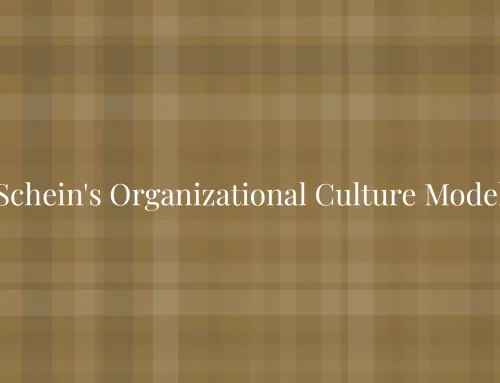Traditionally, consulting firms relied on their talented workforce for success. However, Asset Based Consulting is based on products and business models that leverage technological innovations available today. Asset Based Consulting productises the intellectual property – specialised knowledge, processes, frameworks, methodologies, best-practices, and tools – that consultants have traditionally employed in client engagements. By, productising the intellectual property, a consulting firm can re-use the artefacts across several client engagements, thereby achieving both, scale and scope economies. In short, Asset Based Consulting (ABC) is a consulting approach in which products and the associated Intellectual Property are the main assets in the offer. This is in stark contrast to the human capital that consulting firms traditionally promoted as their value proposition.
Management Consulting under cross-hairs
As an industry, Management Consulting survived an impressively long time without experiencing any disruptions. In fact, the HBR states that Management Consulting hasn’t changed much over the last 100 years. It wasn’t until 2007, that the first hint of disruption appeared.
McKinsey engaged in business model innovation[1] by putting forth McKinsey Solutions — a software-based toolkit that the firm deploys for its clients. Likewise, Deloitte Catalyst includes more than 100 tools to helping organisations accelerate innovation and transform their business models. BCG Platinion covers the technology side of Digital Transformations. BCG offers consulting services focused on the development and implementation of business-critical IT architecture and digital solutions. You can witness similar dynamics across the major players in the consulting industry.
McKinsey, BCG & Deloitte’s move to Asset Based Consulting makes absolute economic sense; after all, a market player, consulting firms included, should embrace evolving business models to cater to customer demands and provide them with a clearer ROI. Similarly, BCG emphasises the need for business model innovation as a source of competitive advantage.
This also marked the first unbundling of services – separating hard knowledge assets from the consulting services McKinsey provides. According to Clayton Christensen, a renowned scholar on disruption, McKinsey’s move was a rational response and hedge against the coming disruption.
Industries under disruption
Today, every firm in every industry is susceptible to disruption[2]. Accenture analysed 3,269 companies—across 20 industries and 98 industry segments—and looked at 15 factors to gauge both the current level of disruption and susceptibility to future disruption. Accenture’s Disruptability Index shows 63% of companies are experiencing disruption.
This dynamic is largely catalysed by the advances in technology by de-coupling the customer value chain. Disruption is so prevalent today that it has made its mark on nearly every industry. Christensen explains the mechanics as such:
New competitors with new business models arrive; incumbents choose to ignore the new players or to flee to higher-margin activities; a disrupter whose product was once barely good enough achieves a level of quality acceptable to the broad middle of the market, undermining the position of longtime leaders and often causing the “flip” to a new basis of competition.
New arenas of competition
High-caliber people are still important—necessary even—to the long-term success of a firm. However, they are no longer the only factor that determines whether a consulting firm can add value to its clients. Over the years, engagement models have changed to reflect changing client and marketplace demands. This evolutionary process has opened entirely new arenas of competition among firms. However, the disruption of the Management Consulting industry hasn’t been so straightforward. Even though disruptors have emerged, we have yet to see total industry disruption.
The Current State of Management Consulting
The business model for management is straightforward. Consulting firms loan qualified personnel (Subject Matter Experts) to solve the business problems that a company cannot solve on its own or chooses to seek external professional assistance. Thus, the consulting business model transforms consultants’ billable hours into business outcomes and results-based pricing models.
Historically, the consulting industry benefitted from opacity and agility that made it immune to disruption. In general, the professional services industry is opaquer than product-based industries, such as manufacturing or automotive. This is because, traditionally, clients hired consulting firms to tackle challenges that they were ill-equipped to do on their own. This makes it inherently more difficult to judge the results, both proactively and retroactively. Hence, the clients rely on credentials of the consultants or the brand of the consulting firm as proxies for quality. Because their investments are in human capital, consulting firms freely responded with agility to new developments.
Changing customer expectations
Today, however, clients are expecting more specialised expertise and results from consulting firms. Clients expect consultants to bring deep knowledge of their industries and experience with the particular challenges they are facing. Unfortunately, larger consulting firms that do not focus on a niche market frequently do not have this type of hyper-specialized talent. Today, clients are expecting specialised solutions to their problems, rather than the boilerplate solutions consultants traditionally provided. Many clients insist on outcomes-based pricing rather than the traditional Time & Materials pricing based on consultants’ efforts. By productising their business models and frameworks, consultants can better provide repeatable, trackable solutions to specific client problems. Thus, the client focus has shifted from consultants’ expertise to the outcome of the engagement itself.
The Future of Management Consulting
As the McKinsey Solutions example shows, the next phase in the disruption of the Management Consulting industry is Asset Based Consulting. This means that consulting firms will differentiate themselves based on their intellectual property by packaging and productizing it in technology. In Asset Based Consulting, it is the Intellectual Property embedded in the products and platforms that is monetized. The objective is to build products that will produce what consultants could have realized over the course of an engagement. The client uses these products on a regular basis instead of working with regular consultants.
Overall, this model requires less customisation and human intervention than the traditional consultancy model which translates into lower costs. It is also more customer-centric; not only can the customers benefit from lower prices, but also store their data in the right platform, which makes it easier to maintain when the consultants leave. In addition, Asset Based Consulting is a competitive response to several startups that are exploring the application of technology and analytics to deliver value faster and cheaper than any consulting company. As Artificial Intelligence and Big Data capabilities improve, the pace of productisation will increase.
Scope of Asset Based Consulting
Asset Based Consulting covers a wide range of approaches from augmenting manual effort with templates, best practices and software tools, through to creating fully packaged services that replace manual efforts with automated solutions. This involves taking the manual activities that consultants did for decades using their skills and expertise and turning them into tools that can be used repeatedly and consistently across several client engagements. What all the approaches have in common is the concept of productising knowledge to reduce the dependency on individual talents. The various Asset Based Consulting approaches are:
- Build – Develop technology that you sell to your clients
- License – Use another company’s products in your consulting engagements
- Buy – Acquire a technology company to use in consulting engagements
Case for Build – KPMG
KPMG audits several of the FTSE 100 companies and is among the Big 4 global accounting firms. However, KPMG is fighting to win business from faster growing small and medium sized enterprises. To achieve this, KPMG offered a cloud-computing accountancy service for a fraction of its normal fees. It spent £40m to develop the cloud-based software that allows businesses to go online and prepare their accounts, do their bookkeeping, administer their payrolls, and file VAT and corporate tax returns.
Likewise, KPMG leverages another financial advisory software solution that replaces traditional financial audit projects. With Artificial Intelligence embedded in the solution, the software analyses accounting data and offers financial advice. KPMG’s clients can use the solution on a regular basis, once per quarter for instance, and receive immediate analysis to help them make data-driven decisions.
These solutions, sold through subscription models, were less expensive for its clients, while delivering value around the year. KPMG also hoped to benefit from the recurring revenue through these solutions, which could also be used by smaller firms that were traditionally reluctant to work with KPMG.
Case for License – Infosys
In 2014, Infosys, a global IT consulting company, announced a strategic partnership with Tableau Software, a global leader in easy-to use business analytics software. The partnership combined the global talent pool and client reach of Infosys with Tableau’s breakthrough analytics technology. As per the partnership, Infosys will integrate Tableau’s software into the solutions it deploys to help clients unlock the power of Big Data.
Case for Buy – IBM Global Services
IBM Global Services consists of two divisions, Global Technology Services (GTS) and Global Business Services (GBS) with a combined revenue of nearly $57billion. In early 2014, IBM purchased Cloudant, a provider of an integrated data management, search, and analytics engine designed for web applications. The Cloudant acquisition is part of IBM’s $1 billion plan to future-proof its offerings. Through this acquisition, IBM is now better positioned to handle customers’ challenges in dealing with the high volume and variety of data required for next-generation applications.




